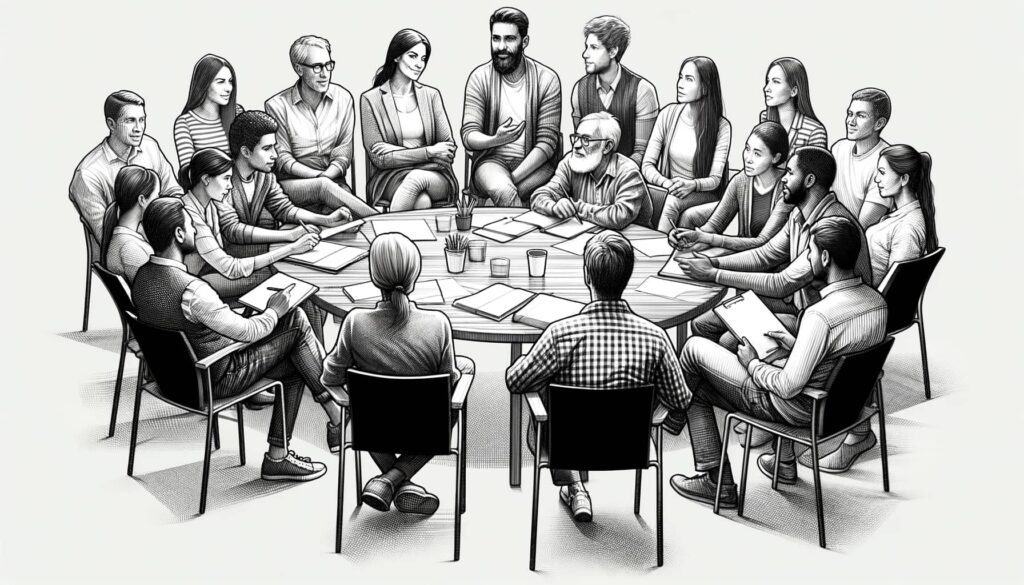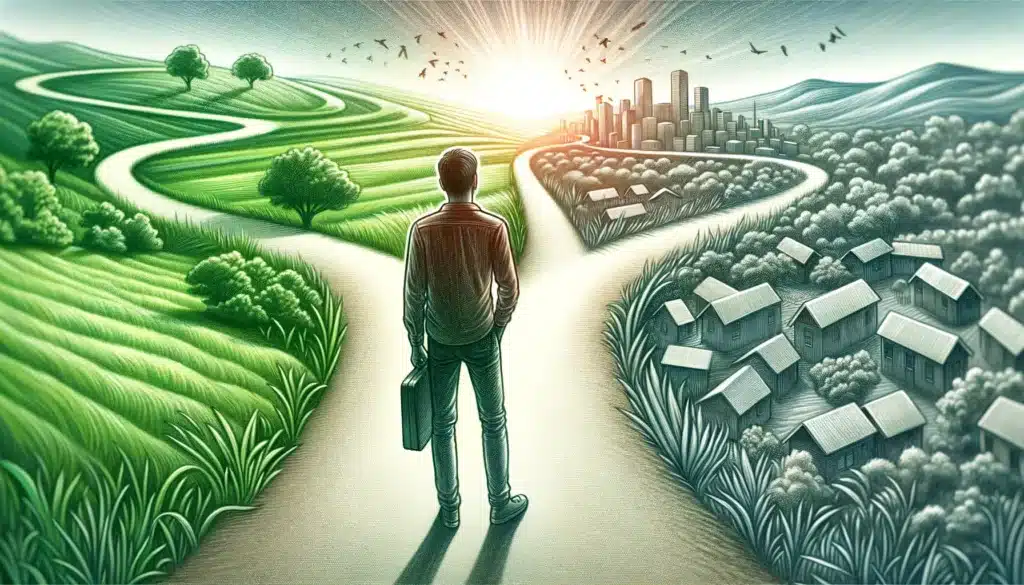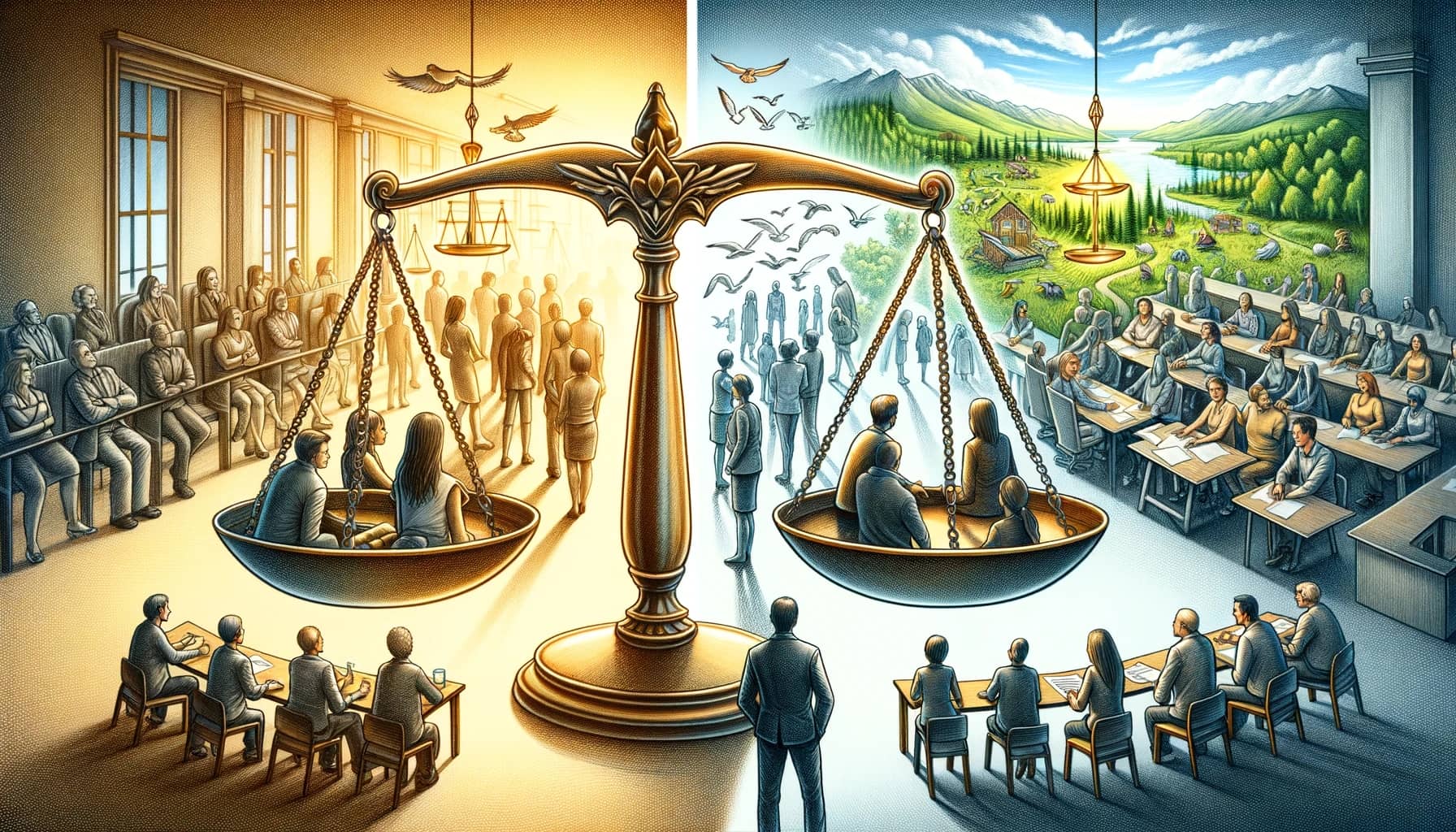In the current global scenario, characterized by enormous geopolitical, environmental and demographic challenges, a provocative question arises: can there be an approach that rethinks and, in some way, bypasses Western individualism? This context requires a new balance between individual rights and responsibilities towards a collective future.
The crisis of individualism in an interconnected world
Western individualism, rooted in the conception of the individual as an autonomous entity and bearer of inalienable rights, today clashes with urgent global realities. The exploitation of common resources. Climate changes. The decline in birth rate. Challenges largely triggered by "Western thought", which raise questions about how individual freedoms can coexist with the need for broader collective responsibility.
Rights and duties: in search of a sustainable balance
A new paradigm could see individual rights accompanied by specific duties. For example, freedom of personal choice could be balanced by the duty to act responsibly towards society and the environment. This does not mean imposing authoritarian restrictions, but rather encouraging a sense of belonging and collective responsibility.
Inspiration may come from Buddhism, with its emphasis on the connection between all beings. Considering its dynamics and trying to transmit them to our forms of aggregation is a perspective that can inspire this new social model. A model in which each individual is seen not only as a separate entity, but also as part of a larger whole, with intrinsic duties towards others and the environment.

The vision of a collective future
I do not forget and do not deny that Western individualism has driven a great deal of progress in terms of human rights and freedom. However, its current drift and global challenges require a rethinking of this model.
An approach that integrates social and collective responsibilities into individual rights could be the key to a more sustainable future. To get there we would need a much more serious and profound transition than the environmental and energy ones. A transition that requires dialogue, empathy and a redefinition of our understanding of freedom and responsibility.
Ethical dilemmas and collective decisions: balancing common goals and individual rights
In the context of a new balance between individual rights and collective responsibilities, a crucial question emerges: who determines the collective objectives of a society and how do they balance these with individual needs? Take, for example, the issue of population decline. If a collective goal is to curb this trend, how does it relate to a woman's individual right to choose whether or not to have children?
The solution to this dilemma does not lie in authoritarian decisions or coercive impositions, but in a delicate balance between collective understanding and respect for personal choices. The key lies in education and the encouragement of collective thinking, which allows informed and conscious individuals to make choices that reflect both their personal desires and the common good.
Balancing individual and collective responsibility requires critical thinking and daily commitment from people to prevent the banality of evil.

The role of education and culture in the collective future of a balanced society
In a society that moves beyond traditional individualism, education and culture take on a crucial role in shaping the social fabric. In the transition towards a model that values both the individual and the collective, educational and cultural training becomes the vehicle through which the values of collective responsibility, empathy and mutual understanding are transmitted.
Education, in this context, is no longer seen only as a means for acquiring technical skills, but also becomes a process of training conscious global citizens. Educational programs focused on critical thinking, ethics, and social awareness encourage students to reflect on their responsibilities not only as individuals, but also as members of a larger community. Learning therefore becomes a path to understand and appreciate the complexity of global challenges and to develop the ability to contribute positively to society.
In parallel, the culture in a post-individualist society it plays a fundamental role in cultivating a sense of belonging and collective identity. Through the arts, literature, cinema and other cultural expressions, the diverse stories and perspectives that make up the fabric of society can be explored and celebrated. Culture becomes a means to promote empathy and integration, challenging narratives that emphasize self-centeredness and instead encouraging a more inclusive and cooperative worldview.
Towards a new society: possibilities, desirability, future challenges
As we contemplate the evolution towards a society that surpasses traditional individualism, it is essential to reflect on its feasibility and desirability. Is it possible to build a community in which individual rights are harmonized with collective responsibilities? And, more importantly: is such a society desirable for us as individuals and as a collective organism?
The transition to a more collectivist social model is not without risks. There is a danger of eroding individual freedoms or imposing homogeneous thinking that suppresses diversity and creativity. These risks can be avoided through a careful balance between personal freedom and common objectives, ensuring that every voice has space and respect in collective dialogue.
On the other hand, such a change could bring significant benefits, such as greater environmental sustainability, social equity, and a deep sense of belonging and collective purpose. To achieve such a transformation, it is essential that each of us actively participates in the process, contributing with ideas, actions and an open mind to changes.
Questions for you
To readers, I ask: How do you see yourself in such a society? What contributions could you make to build a community that values both the individual and the whole? How could you help shape a balanced society, avoiding the excesses of unbridled individualism and oppressive collectivism?
(You can reply wherever you want on our channels: Facebook, Instagram, Threads, X, Telegram)
The road to a balance between individualism and collective responsibility will not be easy. A global dialogue, open to different cultural and philosophical perspectives, will be necessary to formulate solutions that respect both the individual and the collective. Humanity's sustainable future may depend on this delicate balance between personal freedom and collective well-being.


